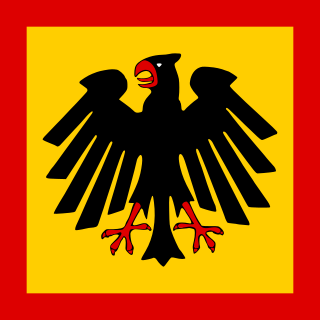
The politics of the Cook Islands takes place in a framework of a parliamentary representative democracy within a constitutional monarchy. The Monarch of New Zealand, represented in the Cook Islands by the King or Queen's Representative, was the Head of State; the prime minister is the head of government of a multi-party system. The nation is self-governing and are fully responsible for internal and foreign affairs. Since 2001, the Cook Islands has run its own foreign and defence policy. Executive power is exercised by the government, while legislative power is vested in both the government and the islands' parliament. The judiciary is independent of the executive and the legislatures.

Switzerland is a semi-direct democratic federal republic. The federal legislative power is vested in the two chambers of the Federal Assembly: the National Council and the Council of States. The Federal Council holds the executive power and is composed of seven power-sharing Federal Councillors elected by the Federal Assembly. The judicial branch is headed by the Federal Supreme Court of Switzerland, whose judges are elected by the Federal Assembly.

Direct democracy or pure democracy is a form of democracy in which the electorate decides on policy initiatives without elected representatives as proxies. This differs from the majority of currently established democracies, which are representative democracies. The theory and practice of direct democracy and participation as its common characteristic was the core of work of many theorists, philosophers, politicians, and social critics, among whom the most important are Jean Jacques Rousseau, John Stuart Mill, and G.D.H. Cole.

In political science, an initiative is a means by which a petition signed by a certain number of registered voters can force a government to choose either to enact a law or hold a public vote in the legislature in what is called indirect initiative, or under direct initiative, where the proposition is put to a plebiscite or referendum, in what is called a Popular initiated Referendum or citizen-initiated referendum.

The president of Iceland is the head of state of Iceland. The incumbent is Guðni Thorlacius Jóhannesson, who is now in his second term as president, elected in 2016 and re-elected in 2020.

The president of Romania is the head of state of Romania. Following a modification to the Romanian Constitution in 2003, the president is directly elected by a two-round system and serves for five years. An individual may serve two terms. During their term in office, the president may not be a formal member of a political party.

The current Constitution of France was adopted on 4 October 1958. It is typically called the Constitution of the Fifth Republic(French: Constitution de la Ve République), and it replaced the Constitution of the Fourth Republic of 1946 with the exception of the preamble per a Constitutional Council decision in July 1971. The current Constitution regards the separation of church and state, democracy, social welfare, and indivisibility as core principles of the French state.

The President of the Reich was the German head of state under the Weimar constitution, which was officially in force from 1919 to 1945. In English he was usually simply referred to as the President of Germany.
There are three types of elections in Denmark: elections to the national parliament, local elections, and elections to the European Parliament. Referendums may also be called to consult the Danish citizenry directly on an issue of national concern.
In Ireland, direct elections by universal suffrage are used for the President, the ceremonial head of state; for Dáil Éireann, the house of representatives of the Oireachtas or parliament; for the European Parliament; and for local government. All elections use proportional representation by means of the single transferable vote (PR-STV) in constituencies returning three or more members, except that the presidential election and by-elections use the single-winner analogue of STV, elsewhere called instant-runoff voting or the alternative vote. Members of Seanad Éireann, the second house of the Oireachtas, are partly nominated, partly indirectly elected, and partly elected by graduates of particular universities.
Elections in Luxembourg are held to determine the political composition of the representative institutions of the Grand Duchy of Luxembourg. Luxembourg is a liberal representative democracy, with universal suffrage guaranteed under the constitution. Elections are held regularly, and are considered to be fair and free.

The Parliament of the Cook Islands is the legislature of the Cook Islands. Originally established under New Zealand’s United Nations mandate it became the national legislature on independence in 1965.
The politics of Bavaria takes place within a framework of a federal parliamentary representative democratic republic, where the Federal Government of Germany exercises sovereign rights with certain powers reserved to the states of Germany including Bavaria.

A referendum on reducing the term length of Parliament from five to four years was held in the Cook Islands on 7 September 2004. It followed a referendum on the same subject in 1999 that was approved by a majority of voters, but not the two-thirds required to be passed. The proposal would amend article 37 of the constitution, which at the time read "The Queen's Representative shall dissolve Parliament at the expiration of 5 years from the date of the last preceding general election, if it has not sooner been dissolved." The change was approved by 82.27% of voters, passing the two-thirds threshold.

A five-part referendum was held in the Cook Islands on 24 March 1994. Voters were consulted on retaining the country's name, flag and national anthem and seats in parliament for overseas Cook Islanders, as well as whether the term of Parliament should be three, four or five years.

A six-part referendum was held in Palau on 2 November 2004 alongside the country's general elections. Voters were asked questions on summoning a Constitutional Convention, payment of members of the National Congress, creating a unicameral Congress, term limits for Congress members, election of the President and Vice President and dual citizenship. All proposals were approved except the unicameral Congress, which despite receiving a majority of the public vote, did not meet the quorum of 12 of 16 states required for amendments to the constitution.

A four-part referendum was held in the Federated States of Micronesia on 1 July 1999. Voters were asked whether a constitutional convention should be called, whether they approved of a proposal on the distribution of revenues from the country's exclusive economic zone (EEZ), whether the amount of tax revenues distributed to the states should rise from 50% to 70%, and whether states should be given exclusive ownership of their natural resources. The latter three had originally been planned to be held alongside the parliamentary elections in March, but were postponed due to a lack of funds to print the ballot papers.

A twenty-three-part referendum was held in Palau on 4 November 2008 alongside the country's general elections. Voters were asked questions on requirements of citizenship to hold office, government provision of primary school and health care, the definition of marriage and term limits for Parliament. Only the proposal permitting naturalization for certain adoptees failed to obtain the requisite majority of the vote and majority in 3/4th of the states.
A series of referendums on the proposed constitution of Australia were held between 2 June 1898 and 31 July 1900 in the six colonies that were to become the states of the Commonwealth of Australia. The first four referendums were held in New South Wales, South Australia, Tasmania and Victoria in June 1898. Although all four saw a majority vote in favour, the majority in New South Wales was insufficient. Knowledge of the result in New South Wales led to low voter turnout in South Australia.
A referendum is a direct vote in which an entire electorate is asked to either accept or reject a particular proposal. This article summarises referendum laws and practice in various countries.











